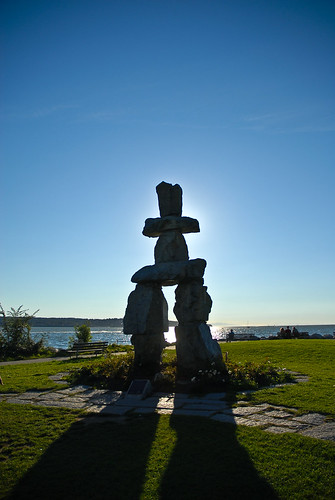 The Olympics represent something special in the sports world. For all of the disputes related to performance enhancing drugs, figure skating “judges”, and the like, the Olympics represent a time when people come together in the spirit of competition. Wars don’t matter. Races and religions don’t matter. The Olympics bring the world together.
The Olympics represent something special in the sports world. For all of the disputes related to performance enhancing drugs, figure skating “judges”, and the like, the Olympics represent a time when people come together in the spirit of competition. Wars don’t matter. Races and religions don’t matter. The Olympics bring the world together.
There is nothing quite like the feeling you have when your athlete, your team, your nation, stands atop the highest level of the podium. When you hear the opening strains of your national anthem, it will always bring a tear to your eye, regardless of what country you were born in (and where home is now). You could be from the United States, or Croatia, or Australia – that sense of pride, that feeling of “home” – exists deep within each of us, almost to the core of our being.
In the three times that Canada has hosted the Olympics, they have not won a gold medal on their home soil. Through the 1976 Summer Olympics in Montreal, the 1988 Winter Olympics in Calgary, and now the 2010 Winter Olympics in Vancouver, Canada has yet to strike gold in their own backyard.
When I was growing up, Canadians were always a little shy about being overtly proud of their nationality. Unless it comes to hockey - our national pastime. But even the Canadian men’s hockey team had a 50 year gold medal drought at the Olympics until 2002. As a Canadian living in the United States, the Olympics are always an interesting psychosocial challenge. I am always reminded of the Canadian medal count, and how it compares to that of the United States. Our Olympics sport self-image has almost become a bit of a Canadian inferiority complex.
I think I really started to notice a collective change sometime around, well, 2002 – the year that the men’s hockey team ended their 50 year drought. When they won – the whole nation cheered. Loudly.
Bob Costas of NBC noted in the opening ceremonies that Canadians have now started to become “openly assertive and ambitious”. Much as this sounded like a bit of a snub, maybe it’s true. Later in the show, he noted that he really didn’t see anything wrong with it – that now, Canadians could be welcoming and great hosts as always, but then say “we’re going to kick your butt”.
Hallelujah.
For this Winter Olympiad, Canada developed a program entitled “Own The Podium”. There was a time not so long ago when a program like that would never have existed in the psyche of the country.
And that same collective psyche – well, it all changed today.
On this Valentine’s Day 2010, a moguls skier gave Canada one of the greatest gifts possible. Alexandre Bilodeau from Montreal, Quebec became the first Canadian to win a gold medal on Canadian soil. And with that, our sports self-image, our belief in ourselves, was awakened.
In 1996, I was in Atlanta working at the Summer Olympics. I had the good fortune of being present at the rowing venue when Marnie McBean and Kathleen Heddle won the gold medal in the women’s double sculls. I was also present for the Canadian 4 x 100m relay track and field gold medal. I got to hear my home nation’s anthem a couple of times. And it was something special, touching, patriotic, emotional.
But I can tell you that those two events in 1996 were nothing compared to the feelings of this evening.
It is always amazing how sport can rally a nation in ways that other things cannot. It’s a beautiful thing to watch. Tonight, Canadians cheer proudly as Canadians. Regardless of whether they are French speaking or English speaking, they wave the flag together. Tonight, it really is about more than just hockey. For a brief fleeting moment, the tears flowed freely. Tonight, it was about who we are. We are, for once, finally, one nation, under gold. In our own backyard.
Photo credit: ***roham*** "Running Injuries: Etiology And Recovery- Based Treatment" (co-author Bridget Clark, PT) appears in the third edition and fourth editions of "Clinical Orthopaedic Rehabilitation: A Team Approach" by Charles Giangarra, MD and Robert C. Manske, PT.
"Running Injuries: Etiology And Recovery- Based Treatment" (co-author Bridget Clark, PT) appears in the third edition and fourth editions of "Clinical Orthopaedic Rehabilitation: A Team Approach" by Charles Giangarra, MD and Robert C. Manske, PT.
 Allan Besselink, PT, DPT, Ph.D., Dip.MDT has a unique voice in the world of sports, education, and health care. Read more about Allan here.
Allan Besselink, PT, DPT, Ph.D., Dip.MDT has a unique voice in the world of sports, education, and health care. Read more about Allan here.
 Top 5 finalist in three categories: "Best Overall Blog", "Best PT Blog" and "Best Advocacy Blog".
Top 5 finalist in three categories: "Best Overall Blog", "Best PT Blog" and "Best Advocacy Blog".